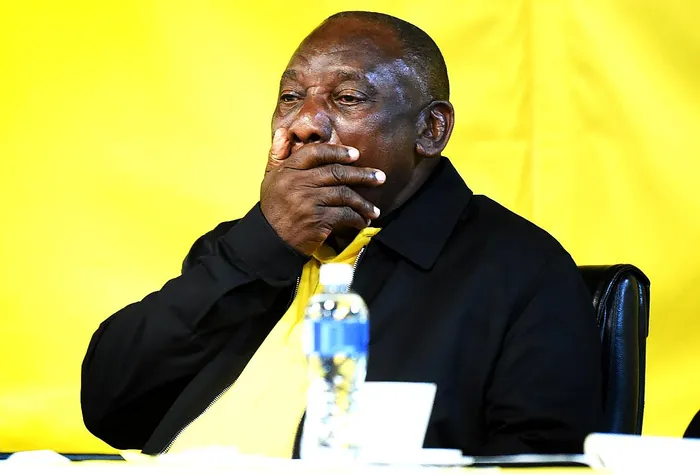Is this the beginning of the end of the Ramaphosa presidency?

ANC president Cyril Ramaphosa told ANC councillors this week that the DA ran better municipalities and that the ANC could learn from them.
Image: Picture: Itumeleng English/ Independent Newspapers
Cyril Ramaphosa stood before thousands of ANC councillors at the FNB Stadium on Monday and did something rare for a party leader in crisis – he told his comrades they were failures.
DA municipalities, he admitted, are often better run than those controlled by the ANC.
It was a moment of brutal honesty, but it may also have been a moment of political suicide.
In a stadium packed with councillors, mayors, and card-carrying comrades, the president of the ANC praised the opposition. He pointed to Cape Town and Stellenbosch as examples worth learning from. “There’s nothing wrong with going to see what Cape Town or Stellenbosch is doing,” he said.
He told ANC councillors that it pained him to see how far many of their municipalities had fallen behind, and challenged them to ask: what are they doing better than us?
To the public, especially those stuck in towns where roads have disintegrated and taps have long since run dry, Ramaphosa’s admission may sound like common sense. But to the ANC’s rank and file it sounded like betrayal.
If Ramaphosa’s words stung, it’s because they were true.
According to the Auditor-General’s latest report on local government, 87% of municipalities failed to comply with procurement and contract management laws. In 63% of these cases, that failure had a material effect on finances.
Another 77% of infrastructure projects were found to have “serious deficiencies”. Think crumbling roads, half-built water systems, broken clinics.
Worse still, 53% of municipalities ignored the most basic accountability rules. When money is mismanaged, no one is fired. No one is prosecuted. Officials are simply shuffled around or recycled into new positions of authority. The cost is borne by the public.
Ramaphosa put it plainly that many ANC municipalities are moving backwards.
Ramaphosa's honesty may win applause from Helen Zille and John Steenhuisen but he has set himself up for backlash from inside his own party.
Analysts who spoke to IOL News believe the president may have said out loud what he’s long felt.
Independent political analyst Goodenough Mashego said the speech reflected a truth Ramaphosa had likely held back for years, fearing internal backlash.
“He couldn’t say it before because of pressure within the ANC to project an image of a party that is out there to help people - even when they know the people they deploy come with selfish intentions,” Mashego said.
Another analyst, Solly Rashilo, put it bluntly: “It’s an admission of failure, highlighting years of corruption, incompetence, and neglect in ANC-led municipalities.”
In any other political context, a president pushing for reform might be celebrated. But in the ANC, where local structures carry enormous political weight and internal discipline often overrides public accountability, calling out your own councillors in front of the glare of television cameras can be seen as a declaration of war.
Already, the memes are flying around.
The DA, naturally, welcomed Ramaphosa’s remarks. They called it an endorsement of their record and seized the opportunity to remind voters that “where we govern, services are delivered”.
The DA’s communications team were quick to capitalise on Ramaphosa’s remarks and within minutes flooded social media with his quotes.
Zille, who is eyeing a mayoral run in Johannesburg in 2026, will use Ramaphosa’s words as ammunition against the ANC. It will be framed along the lines that the president of the ANC essentially told voters that if they want working municipalities, they must look at the DA.
The internal fallout has already begun. Some councillors dismissed the speech entirely. One simply texted IOL reporter, Simon Majadibodu “Eish… no response,” when asked for comment. Another said: “I went there just to get marching orders, not to debate the marching orders.”
Ramaphosa’s strength has never been in commanding loyalty through fear or factional muscle. His leadership rests on consensus, persuasion, and the idea that he's the ANC's best hope for revival.
But if the party’s councillors, local leaders, and foot soldiers decide he’s crossed a line by lifting up the DA as a model, then his own position becomes shaky. The ANC has a long history of swallowing its presidents. Just ask Thabo Mbeki and Jacob Zuma.
Ramaphosa’s Damascus moment on Monday may be remembered as a turning point in his presidency. And if the rumblings on the ground are anything to go by, it may be the beginning of the end for him.
* Lee Rondganger is the Deputy Editor of IOL.
IOL Opinion
Related Topics: